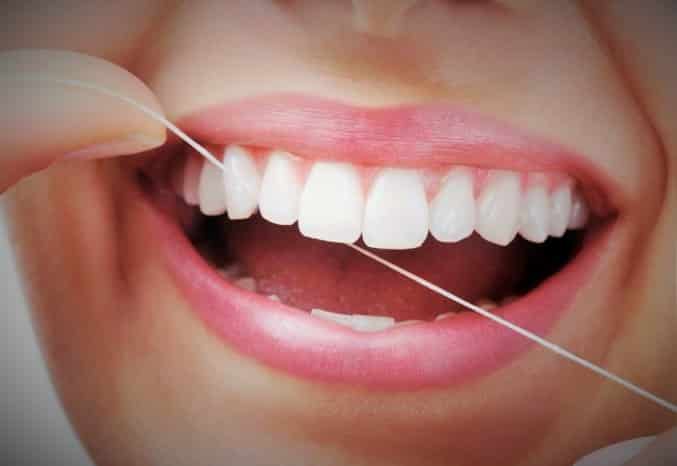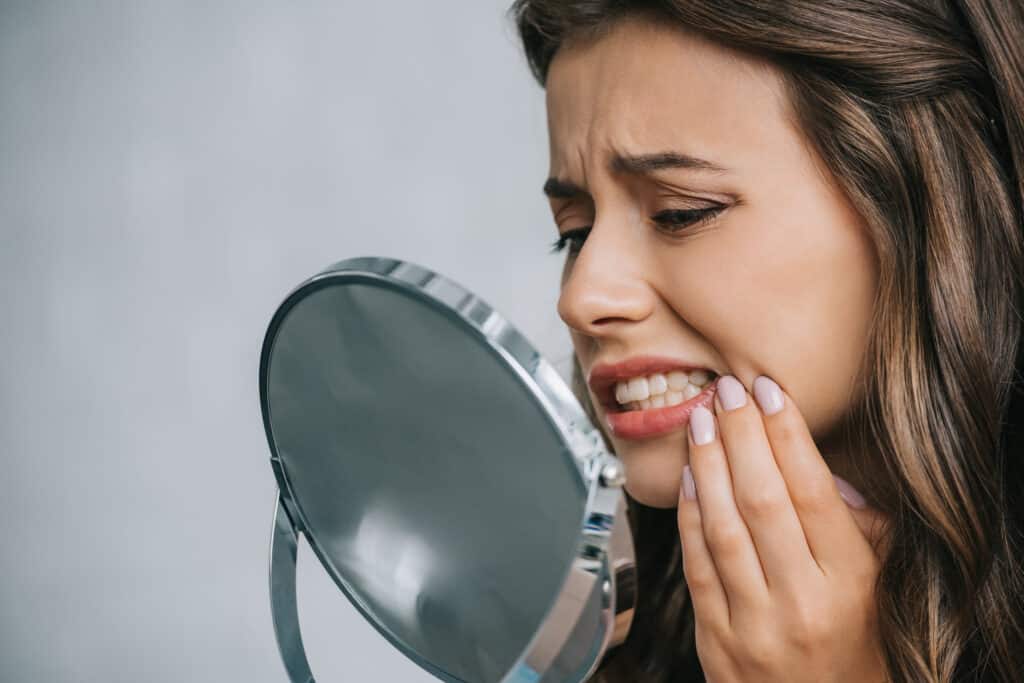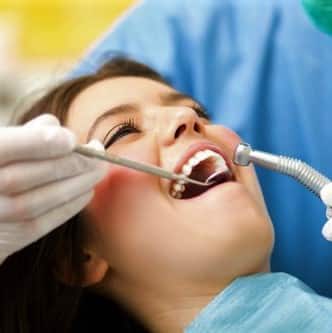7 Tips to Find the Best Dentist for Your Oral Health Needs
June 19, 2025

November 1, 2023
In the world of oral health, bleeding gums can be a cause for concern, often signaling an underlying issue that needs attention. Most people notice their gums bleed when flossing, which can sometimes lead them to exacerbate the problem by avoiding flossing altogether. While it can be uncomfortable and even painful to floss when your gums bleed, flossing is an extremely important part of maintaining good oral health.
Many of us underestimate the importance of regular flossing, assuming that brushing alone is enough to maintain a healthy mouth. However, neglecting to floss can lead to a plethora of problems. In this blog post we will delve into the reasons why your gums might be bleeding when you floss. Understanding these causes not only sheds light on the significance of flossing but also empowers us to make informed choices for our oral well-being.

Periodontal disease, commonly referred to as gum disease, is a prevalent oral health condition that can cause gums to bleed if proper oral hygiene practices like flossing are neglected. Periodontal disease is a bacterial infection that affects the supporting structures of your teeth, primarily the gums, bone, and ligaments. It typically develops in stages, with gingivitis being the earliest and often reversible form. When not addressed, gingivitis can progress into periodontitis, which is more severe and can lead to permanent damage to the gums and tooth-supporting structures.
Plaque is a sticky film of bacteria that forms on your teeth, especially in areas that are difficult to reach with regular brushing. If plaque is not removed through proper oral hygiene practices, it can harden into tartar or calculus, which can irritate and inflame the gums. The friction from the dental floss against the inflamed gum tissue can lead to having gums bleed when flossing.
When you floss, the dental floss passes between your teeth and along the gumline, an area where plaque and tartar tend to accumulate. The abrasive action of the floss, combined with the inflammation of the gums, can cause the delicate blood vessels in the gum tissues to rupture, leading to bleeding. This bleeding is often a sign of gingivitis, the earliest stage of gum disease.
The body’s immune system responds to plaque and tartar buildup along the gumline by releasing inflammatory substances. These substances can cause the gums to become swollen, tender, and red. When pressure is put on the gums, like a toothbrush or floss, the sensitive gum tissue is more likely to bleed and create pain.

In a healthy mouth, the gums fit snugly around the teeth, forming a shallow v-shaped crevice known as a sulcus. However, in the presence of periodontal disease, the attachment between the gums and teeth weakens. This can be due to factors such as plaque and tartar buildup, which lead to bacterial infection and inflammation, causing the gums to pull away from the teeth.
As the attachment weakens, small spaces called periodontal pockets form between the gums and teeth. These pockets are difficult to clean with regular brushing but can often be accessed with dental floss. When you floss, the thread can reach into these pockets, disrupting the plaque and bacteria residing there.
Poor brushing and flossing habits can indeed contribute to bleeding gums when flossing is neglected. These habits directly impact the buildup of plaque and the overall health of your gums.
Even if you floss regularly, using improper flossing techniques such as snapping the floss into the gums or using excessive force can injure the gum tissues, leading to bleeding. Avoiding regular dental check-ups means that potential issues like gum disease go undetected and untreated. Dental professionals can identify early signs of gum disease and provide appropriate guidance and treatment.
The good news is that bleeding gums due to bad oral health habits is often reversible with proper care. Regular and correct brushing, flossing, and rinsing with an antimicrobial mouthwash can help remove plaque and prevent gingivitis. If bleeding persists or worsens, it is crucial to consult a dentist. They can assess the situation, provide professional cleanings to remove tartar, and offer guidance on maintaining good oral hygiene habits to keep your gums healthy and free from bleeding during flossing.

Simple improvements in your habits can make an impact on the health and sensitivity of your gums. Regularly brushing your teeth with a soft bristle brush can help with sensitive gums, along with using antigingivitis toothpastes.
Improving your flossing habits will also help your gums bleed less by strengthening your gums. Flossing every day will also remove plaque that can lead to more sensitive gums.
Dental hygienists can remove plaque and tartar buildup from areas that are difficult to reach with regular brushing and flossing. This thorough cleaning helps reduce inflammation in the gums. When your mouth is healthy, you are less likely to have gums bleed when flossing.
Dentists can also diagnose gum diseases such as gingivitis or periodontitis in their early stages. If you have gum disease, they can provide appropriate treatments to manage the condition, reducing inflammation and bleeding. This might include scaling and root planing, a deep cleaning procedure that removes plaque and tartar from below the gumline.
Regular visits to the dentist play a crucial role in preventing and addressing gum bleeding, promoting optimal oral health, and avoiding more serious dental issues. Dental professionals use specialized tools to remove plaque and tartar that cannot be effectively eliminated through regular brushing and flossing alone. Regular cleanings help keep your gums healthy by preventing the progression of gum disease.
Dentists can provide professional cleanings, personalized guidance, and necessary treatments, all of which contribute to healthier gums and reduced bleeding during flossing. By working closely with your dental professionals, you can establish effective oral hygiene habits and enjoy a healthier, happier smile.
2797 U.S. 89 #201
Pleasant View, UT 84414
| Monday | 8 AM - 5 PM |
|---|---|
| Tuesday | 8 AM - 7 PM |
| Wednesday | 8 AM - 7 PM |
| Thursday | 8 AM - 7 PM |
| Friday | 8 AM - 3 PM |
| Saturday | 8 AM - 12 PM |
| Sunday | Closed |
Proudly accepting new patients from: Pleasant View, North Ogden, Harrisville, Farr West, Marriott-Slaterville, Ogden, Plain City, South Willard, Willard and Perry!
© 2025 | Mountain View Dental | All Rights Reserved | Accessibility | Anti-Discrimination | Healthcare Disclaimer | HIPAA Privacy Policy | Privacy Policy | Terms | XML Sitemap | Sitemap | Site by PDM
